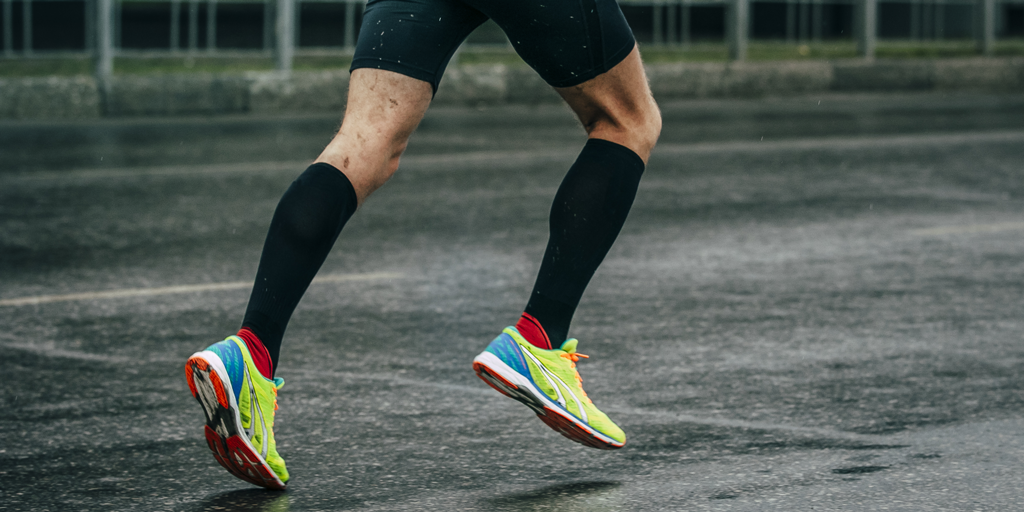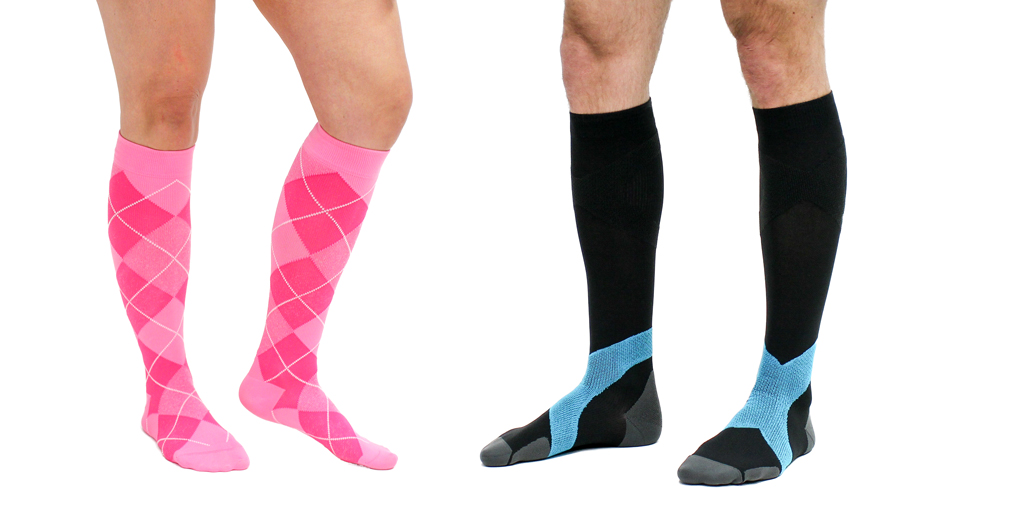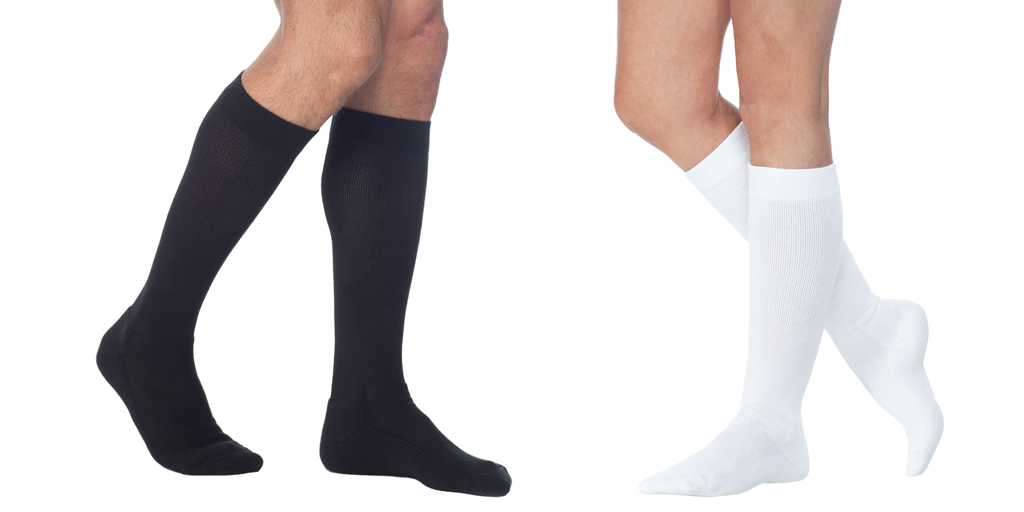Which Compression Socks Should You Wear?
Wearing compression socks offers a variety of benefits. These benefits range from everyday comfort for your feet and lower legs to overcoming venous deficiencies. Regardless of your goal in wearing compression socks, you need to speak to both a certified fitting expert and your physician about which level of compression and which socks are right for your needs.

How Compression Socks Work
Our bodies require constant blood circulation to operate. This means blood must flow from our heart throughout our body, and return back to our heart efficiently. To move blood from our lower legs and feet, we have to fight gravity. However, our bodies can accomplish this quite easily with normal muscle activity and vein structure.
The calf muscle is sometimes referred to as ‘the second heart’. When your calf muscle contracts, it squeezes blood from the lower leg back towards your heart. Your veins have valves, which act as one-way gates to prevent the blood from flowing back to your feet.
Consistently standing or sitting doesn’t activate the calf ‘pump’ and blood will pool in your lower legs and feet. This can contribute to cramping, discomfort and fatigue. In addition, increased blood pressure in the lower legs can also contribute to the formation of varicose veins and other venous deficiencies.
Properly-fitted compression socks provide a compressive force that is greatest at the ankles and then decreases as the sock goes up your leg. Graduated compression helps your muscles and veins move blood from your lower legs back up to your heart.
Everyday vs. Medical-Grade Compression
There are two main categories of compression socks:
every day
medical-grade

Everyday Compression
Everyday compression socks range from 15-20 mmHg – or millimetres of mercury. A millimetre of mercury is a unit of pressure measurement commonly used in the medical field.
While medical-grade compression will provide greater benefits, everyday compression – or over the counter compression – will benefit those who:
- Have heavy or tired legs
- Stand all day at work
- Sit for long periods of time
- Travel frequently by air
- Want efficient recovery after exercise
WATCH: 5 Reasons Why You Need Compression Socks (2:34)
You can purchase everyday compression socks over-the-counter without a doctor’s referral. However, if you’ve never worn compression socks before, a specialist will need to measure these socks to your foot and leg size. Be sure to book an appointment, so you can be fitted appropriately.
Already been fitted for compression socks? See our selection of everyday compression socks online.

Medical-Grade Compression
Medical-grade compression socks are not just for people with circulatory medical conditions. As well, they will provide a greater level of benefit compared to over the counter compression socks. For people who have circulatory medical conditions – such as varicose veins, spider veins, history of deep vein thrombosis, edema and other conditions – medical grade compression is essential.
These socks measure above 20 mmHg in compression. This means they require a referral from a medical doctor to determine the required compression level for your individual needs.
Talk to a Compression Fitting Specialist
A compression fitting specialist will work with you to find the correct material that will match your needs, lifestyle, career, and footwear.
Along with your physician, the certified compression sock fitters at Kintec are here to answer any questions about compression socks and their benefits. Visit a store near you, or talk to a fitting expert live on our website!
Sorry, the comment form is closed at this time.